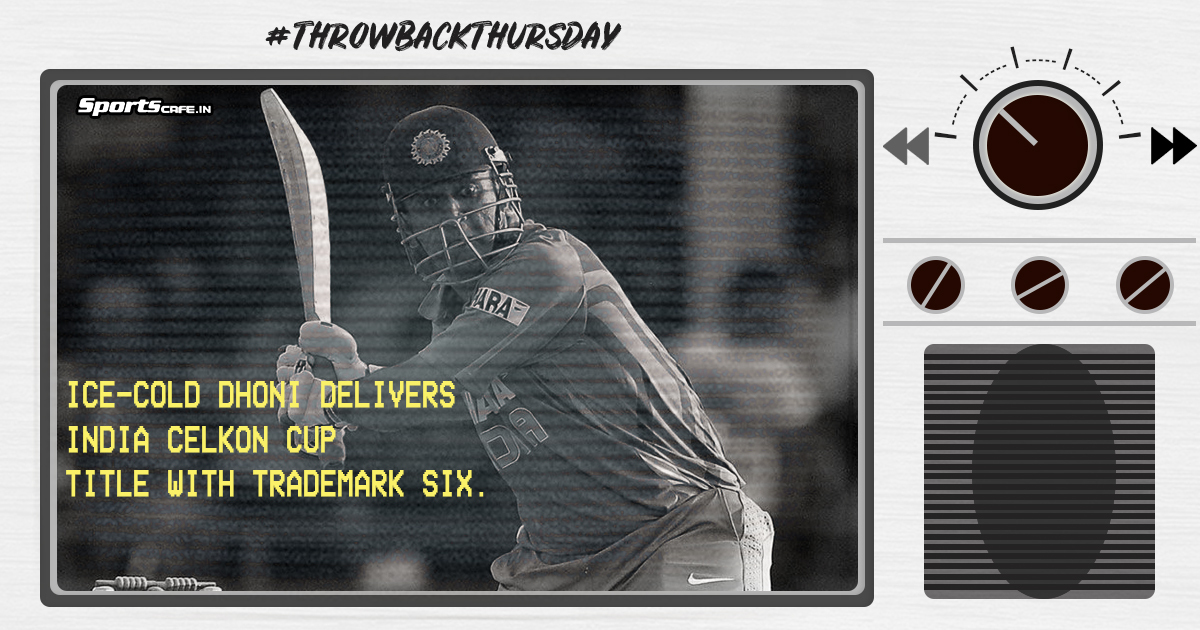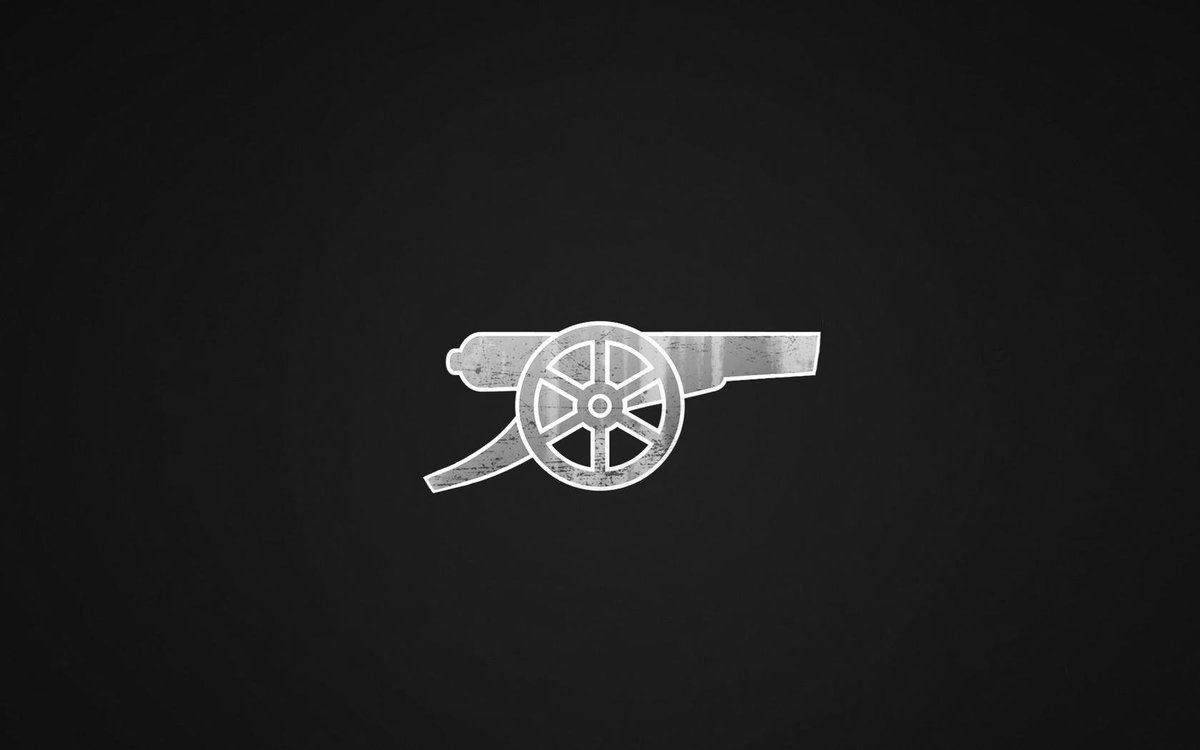Throwback Thursday | Ice-cold MS Dhoni delivers India Celkon Cup title with trademark six

Throwback to the Celkon Cup 2013 Final
|SportsCafe
Welcome to the series where we present you a moment, a game in history that has shaped the way the sport has been played, in our weekly segment ‘Throwback Thursday.' This week, we revisit the final moments of the Celkon Cup final between India and Sri Lanka, which was played on the back of CT13.
It is July 11, 2013, and we are at the Queen’s Park Oval in Trinidad for the Celkon Cup final where 20,000 fans are glued to their seats despite their home team, West Indies, having failed to make it to the summit. The two teams responsible for it are India and Sri Lanka, who are three balls away from completing a game that would, irrespective of the result, be remembered in the future as one of the most nerve-wracking finals of all time. At 197/9, chasing 202, 5 runs required off 3 balls with one wicket in hand is the equation for India, who have rest their hopes firmly on one man and one man only - MS Dhoni. The (impossible) job of stopping Dhoni from doing Dhoni things is with 27-year-old Shaminda Eranga who is no muck, having already pocketed the scalps of Shikhar Dhawan and Virat Kohli in his first spell.
But before we could play out the final moments, it is important to go back in time and understand how Dhoni, yet again, found himself in a position where he had to dig really, really deep to bail team India out of trouble.
The timing, or rather the scheduling, of the 2013 Celkon Cup was very, very weird and it was, in fact, a tournament that at least India could have easily done without. The Celkon Mobile Cup 2013, a tri-series involving India, Sri Lanka and West Indies, took place just five days after the final of the 2013 Champions Trophy, in which India triumphed over England, and the whole arrangement seemed haphazard.
While the scheduling was convenient for the home side, West Indies, who had two weeks to prepare for the tournament after getting knocked out of the group stages of the Champions Trophy, it was, however, a nightmare for both India and Sri Lanka, both of who had just one week between their last Champions Trophy knockout match in England and their first Celkon Trophy round-robin match in the Caribbean.
And, almost unsurprisingly, fatigue took a toll on both the visiting sub-continent sides in the very first round of matches as both sides slumped to defeat at the hands of the hosts, Windies, at Sabina Park. While the Lankans plummeted to a six-wicket drubbing in the very first match of the series, thanks to a bludgeoning Chris Gayle century, the Indians, meanwhile, suffered a shock one-wicket defeat after Tino Best and Kemar Roach put on 10 runs for the final wicket to help the hosts chase down a paltry 230, which was set by MS Dhoni’s side. These two wins instantly put the hosts in the drivers’ seat to make it to the final, which was set to be played after four round-robin matches per side.
After match one, things turned from bad to worse for the reigning champions when Sri Lanka pummelled a Dhoni-less India in their second game by a thumping 161-run margin, but the Men in Blue bounced back in their third game to keep themselves alive in the competition. Two defeats in three games meant that India had no control over their future in the tournament, but, as fate had it, Sri Lanka thrashing Windies in the hosts’ final round-robin match opened a door to make it to the final for a temporarily Virat Kohli-led side, who grabbed the opportunity with both hands and edged the Lankans in the final round robin game by 81 runs to pip the Windies to the final.
So, the date was set: July 11, 2013, rematch of the Champions Trophy semi-final, India vs Sri Lanka at Sabina Park in the final of the Celkon Cup.
Heading into the final, India had an edge over the Lankans, having already beaten them twice in the past fortnight, including in the Champions Trophy semi-final, but their chances got bolstered by manifold when incumbent skipper Mahendra Singh Dhoni, who’d missed each of the last three round-robin matches owing to a hamstring injury, was passed fit to play the game.
For the first 79 overs of the match, though, it looked like India were on their way to lifting the title without needing the services of their skipper. After winning the toss and opting to bowl on a dead Sabina Park wicket that had already hosted six games in the preceding 12 days, the Indian spinners - Ravichandran Ashwin and Ravindra Jadeja - ran riot after Bhuvneshwar Kumar set the middle overs up for them after removing the openers Tharanga and Jayawardene. Master and apprentice Sangakkara and Thirimanne, albeit batting slow, did their best to fend off the imminent threat and scored 71 and 46 respectively, but the last 7 Lankan batsmen combinedly scoring 28 runs between them meant that 202 was all India needed to score to lift the title.
A determined Shaminda Eranga, playing in just his 11th ODI, removed both Kohli and Dhawan in the space of 14 balls to reduce India to 27/2 and give them a mild scare, but a fifty from Rohit Sharma and valuable contributions from Suresh Raina and Dinesh Karthik took India to 139/3 in no time - just 63 shy of the target with 7 wickets in hand. With the required run rate 3.31, the Indian dressing room were all smiles, but boy they had little idea what was about to hit them.
With the pitch starting to play its tricks after almost 80 overs in the game, skipper Angelo Matthews brought in the experienced Rangana ‘Rang-ayyah’ Herath for his final spell, and the veteran struck on his very first ball, dismissing the well-set Rohit. Suranga Lakmal dismissing Raina three overs later opened up the floodgates and Herath, in his final over, dismissed both Ashwin and Jadeja LBW to reduce India to 152/7.
A helpless Dhoni, who had faced all of 16 deliveries, watched all this unfold from the other end and soon things were going to turn even worse for the Indian skipper, as pacers Bhuvneshwar and Vinay Kumar combinedly added just 5 runs off the 31 deliveries they faced to leave India needing 20 off the last three and a half overs, with a solitary wicket in hand, to win the final.
At 182/9, with Ishant Sharma his partner at the other end, Dhoni was left to plough his own furrow and he obliged. Caught in a life-or-death situation, the Jharkhand man approached the situation the best and the only way he knew - by taking the match to the absolute wire. 17 was needed off 2 overs with Ishant on strike, but such was Dhoni’s confidence in his own abilities that he, without giving a thought to the required run rate, instructed the tail-ender to just play out the over. Ishant did as he was told, and scored just two runs, which left Dhoni to get 15 off the final over to deliver India the cup.
A dot in the first ball of the final over, bowled by top-order wrecker Shaminda Eranga, built further pressure on the Indians, but Dhoni, unphased as ever by the situation, stayed calm, stayed put and stayed in his own little bubble. And then, as if pressure and nerves were faux emotions invented by men incapable of living up to their promise, the Indian skipper smashed a six over long-off and a four over extra-cover to bring the equation to 5 needed off 3 balls. Just. Like. That.
So that brings us to the moment. In the bigger picture, the Celkon Cup might be an inconsequential tri-series, but what’s at stake here is Dhoni’s reputation as a finisher and India’s reputation as the reigning double-champs. An encore of Dharamsala 2010 and Adelaide 2012 from Dhoni would be the kiss of death for the Lankans and thus, to stop that from happening, the bowler Eranga and seniors Matthews and Jayawardene convene and have a long, deep chat in an attempt to outsmart the smartest man in the world. Eranga takes a deep breath, takes his mark and runs into bowl the delivery to Dhoni, who is staring right into his soul. This is it.
Welcome to a moment in history
